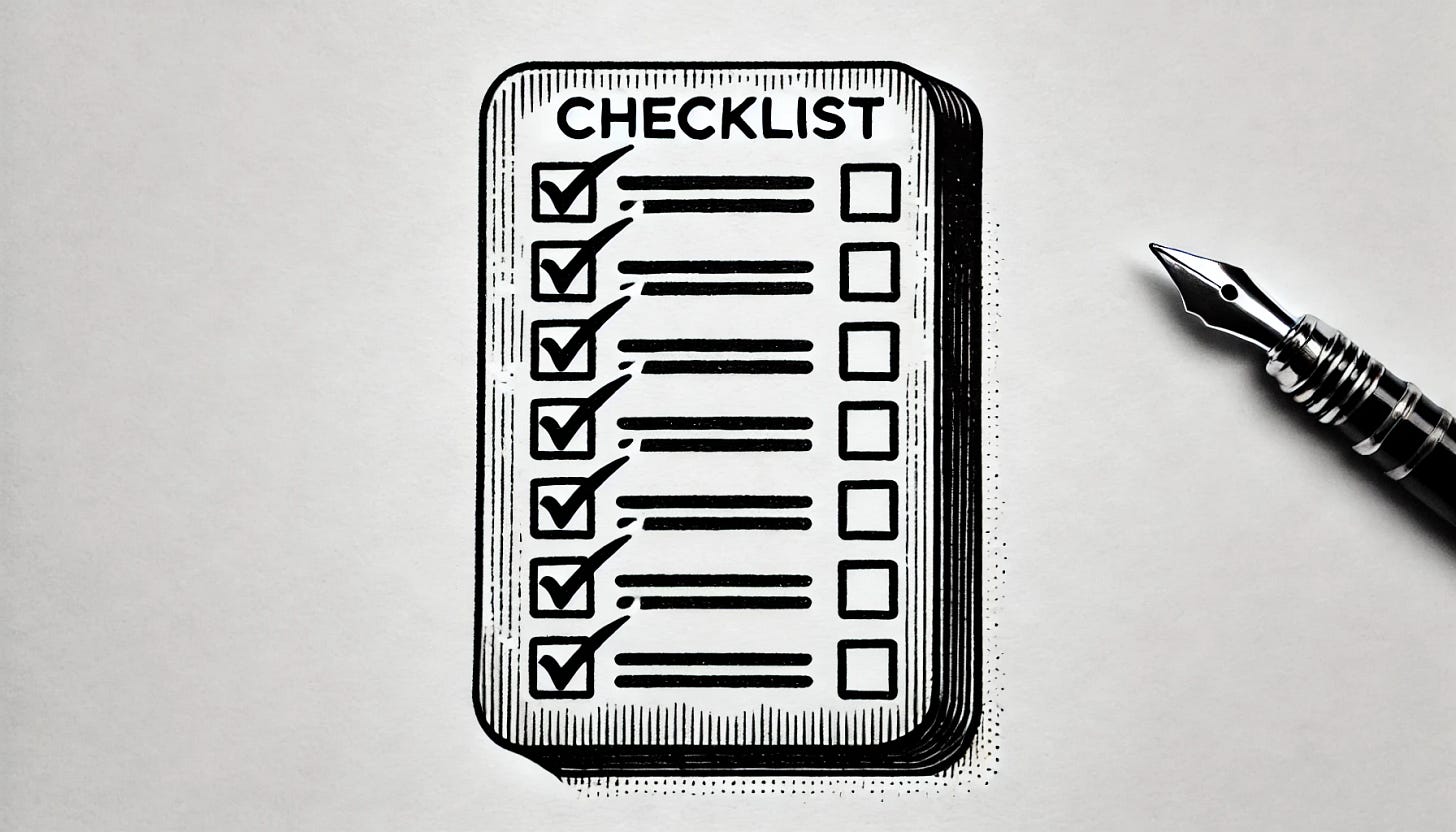The Neurodivergent "Bad With Money" Task Checklist
Different ways to think about earning, saving, and organizing money.
Last week I wrote about being bad with money:
“Simply put, some people just get stuck when it comes to basic money tasks.”
Many readers wrote in to share their perspective, including several who wished to remain anonymous but said that “money tasks” were a serious problem for them. There’s a lot of shame around money habits!
In that post I referenced something called a “Mo’ Money Day,” which is an activity I created many years ago in a business book. As promised, I’m back with an update: a neurodivergent-friendly exercise that you can borrow, use, or modify as you see fit.
The goal is to help you accomplish some money tasks that will be helpful for you both now and in the future.
Before we get into the tasks, a couple of “mindset tips” that might help:
1. Approach money tasks as opportunities.
Even if you’re not an avid practitioner of demand avoidance, sometimes money tasks feel stressful and burdensome. Wherever possible, approach them as opportunities. Just think: If you do these things, your life will be better. Which brings us to:
2. Imagine how you’ll feel upon completing them.
Perhaps you might feel one of these emotions:
Relief, satisfaction, pride, confidence, a sense of empowerment
Wouldn’t that be great?! And if nothing else, each task you complete will be some sort of improvement. Think about that as you prepare to tackle the items.
3. Look for quick wins.
We’re not trying to create a whole new financial system here—we’re trying to fix some problems and pursue some opportunities. Getting a few things in better shape may also help you feel more confident about whatever big problems seem insurmountable.
Alright, here’s a list of Mo’ Money tasks! Modify them as desired, of course.
Neurodivergent “Bad With Money” Tasks
PART 1: ORGANIZING
Clean up any loose “money papers” (bills, statements, tax notices, etc.) that have been lying around: set a 10-minute timer and sort everything into keep and recycle piles
Digitize anything you might need for later (you can do this with a scanning app on your phone)
Create a digital note with account numbers (this can save you time later when you need to look something up)
Set up automatic bill payments for recurring expenses (especially your credit card bill, so you avoid late charges)
Ask yourself: what’s one specific money task I’ve been avoiding? And then ask: what’s one next step I can take towards getting it off my mind?
PART 2: EARNING
Identify 3 items in your home you no longer need and post them for sale on a local buy/sell app
Brainstorm at least 3 skills you have that others might pay for on a freelance basis (check out the categories on Upwork for some ideas)
Set up a separate bank account for freelance income (many no-fee accounts can be opened online—and they often include bonuses for completing a few deposits)
Apply for a microtask website like Amazon Mechanical Turk and complete one small task
Ask yourself: how many ways do I currently earn money? If the answer seems low, consider setting a goal to diversify your income over the next year
PART 3: SAVING
Make sure you’re signed up for any workplace savings or retirement plans that offer some type of match
Use the "save the change" feature on your bank account or app
Cancel at least one paid subscription you’re not using or don’t need anymore
Bonus: “pretend cancel” a subscription and see if you get an offer to continue at a lower rate (this works great for Audible, among many others)
PART 4: SPENDING
Sign up for a spending tracker (Monarch Money is one) to automatically keep up with where your money goes
Do a "subscription audit": list all your subscriptions and mark each as "keep," "cancel," or "maybe"
Create a "fun fund" or account, and set aside a small amount each week for guilt-free spending
Create a $10 rule—or whatever amount seems right to you—where you won’t question yourself too much for buying something that makes your life better (this helped me a lot when traveling the world)
Personalize the List and Make it Visual
Again, we’re not trying to create a huge system here—but I’m sure there are many more tasks that could be added to your list. (Feel free to suggest any in the comments if you’d like.)
For some people, it might be helpful to make this list more visual. Just like it helps to make time more visual, being able to see your Mo’ Money’ tasks in a series of post-its or other visual aid might make it more likely that you’ll tackle them.
What would you add to the Money Tasks list?
Two New Books About Money (Not Mine)
Before I go, two new books!
In This Economy?: How Money & Markets Really Work. This one is less about personal finance and more about the overall economy, but it’s very helpful in explaining some concepts that many people take for granted.
You Don’t Need a Budget: Stop Worrying about Debt, Spend without Shame, and Manage Money with Ease. This one comes out in December, and I’ve been reading an advance copy. Pre-order now to support the author!










This is an incredibly helpful checklist, Chris -- thank you!
I have done that 'fake unsubscribe' trick with the New York Times, and it works every time. They increase my subscription to more than $20 a month, I cancel it, then spend about 5 minutes in an online chat with one of their reps and invariably get it down to the $6/7 month range for the next year. Feels like such an accomplishment ; )
I definitely need to review my subscriptions - thanks for the reminder. I'm sure I have things I pay for that I no longer use, or barely use.